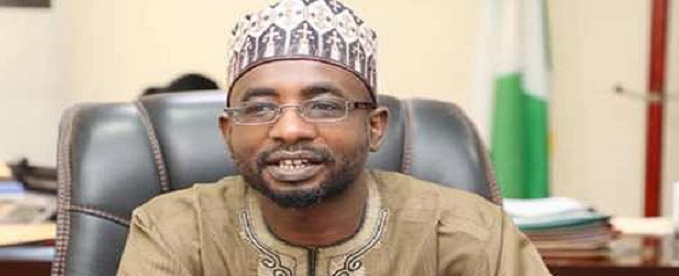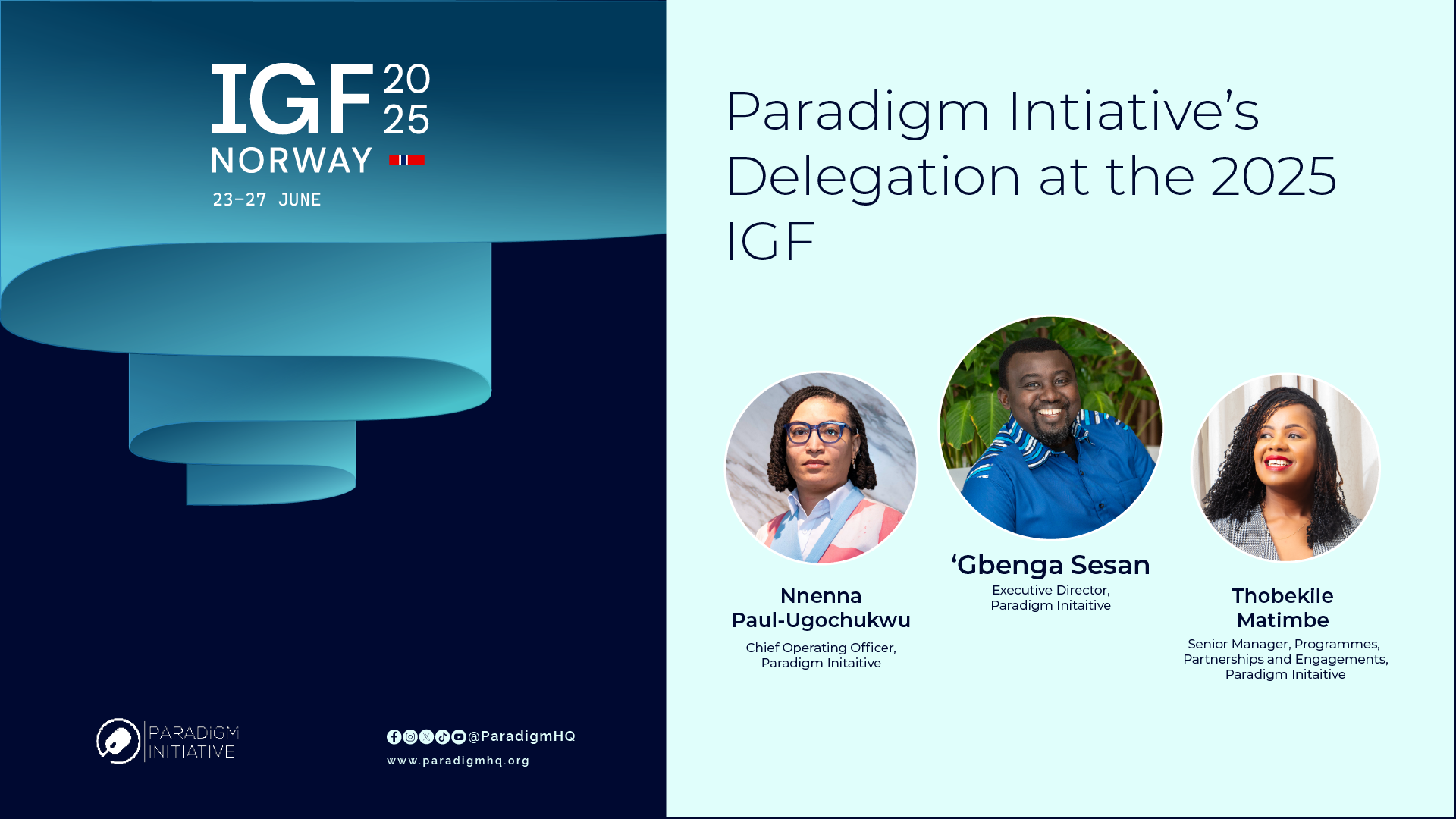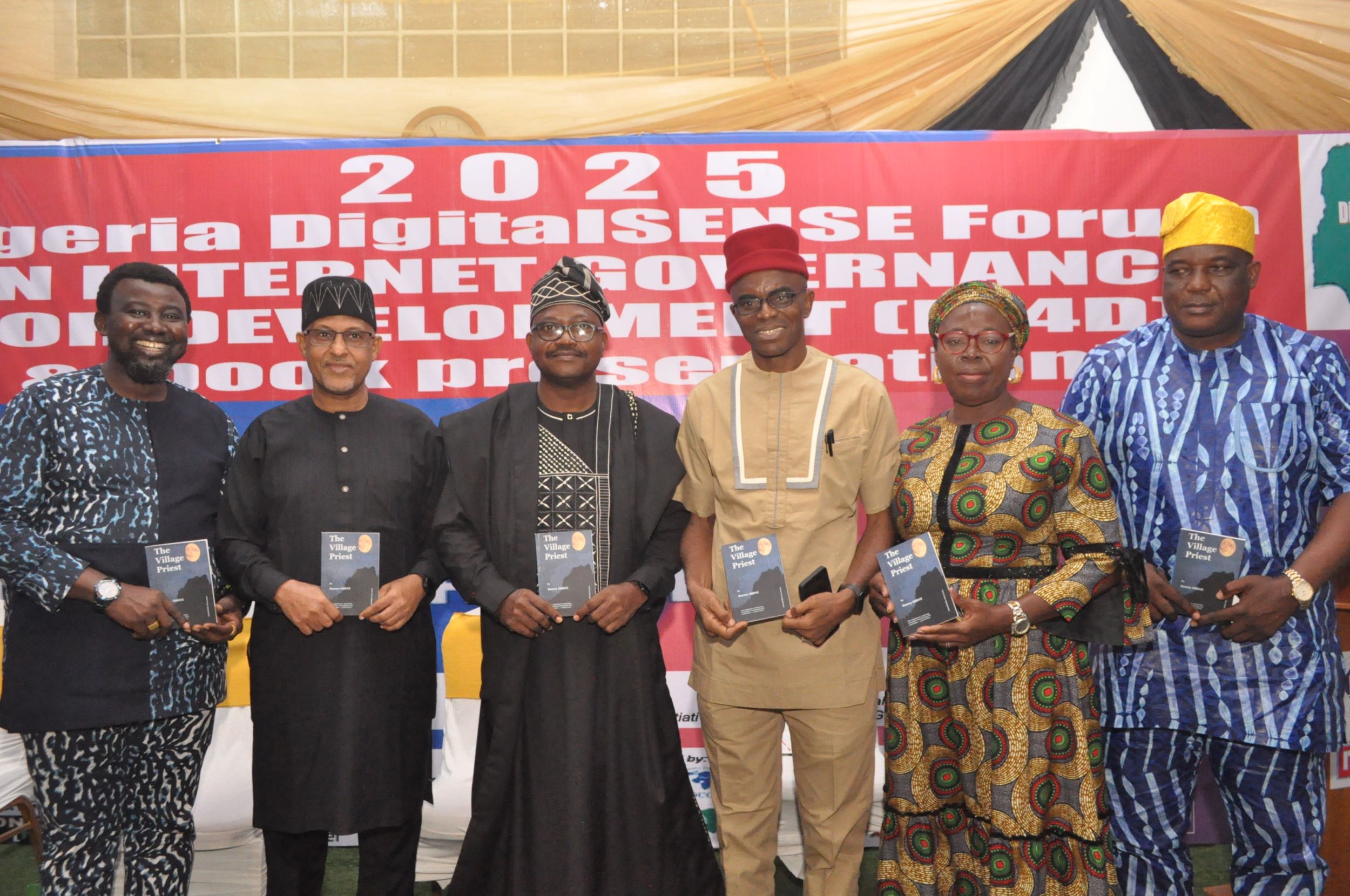Telecom
Start-Ups in Nigeria can Generate $3Bn Annually- NITDA DG

Kashifu Inuwa Abdullahi, director-general of the Nigeria Information and Technology Development Agency (NITDA), has said that Nigerian IT start-up environment is capable of generating $3 billion annually.

Kashifu Inuwa Abdullahi, DG, NITDA
Abdullahi, disclosed this in an interview with Economic Confidential and noted that the development translates to $30 billion revenue generation by 2030.
Abdullahi noted that realizing the projection will entail harnessing the power of the internet by Nigerian innovators, adding that the Nigerian government is creating an enabling environment for start-ups to thrive.
The director-general described Nigeria as a country with great potential, going by its economic size, which, he said, makes up 18 per cent of Africa’s GDP.
“Africa, apart from China, has the opportunity to benefit from the new world we are creating. Our size, our population is of advantage because the world is shifting from the way we eat, the way we work and the way we do things.
“This new normal is powered by technology and technology is derived by people. People that drive this technology migration are young people and Africa has the highest youth population in the world.
“It is also projected that by the year 2050, Africa will have 1 in 3 youths in this world,” he said.
This, he said, is a potential advantage for Africa that Nigeria needs to harness well in order to benefit from the new economy, noting that three trends are shaping and creating the African economy.
According to him, the three trends, include increase, affordability and fast internet speed across the continent; startups to transform business landscape and the general economy.
He further explained that when you look at the emerging technology ecosystem, and the market they are creating, you will realize that there are two promising emerging technologies that are going to change a lot of things in the world: Blockchain and Artificial Intelligence.
He said that based on two reports by PWC, they projected that by year 2030, Blockchain technology will add up to $1.76 trillion to global GDP.
And based on that report, they said that developing countries, at least, can add 4 percent of the GDP if they use that technology. For example, Nigeria’s GDP today is more than $400 million.
The 4 percent of $400 million is more than $10 billion.
That is the minimum GDP Blockchain technology can generate.
He further said that in another report, PWC projected that Artificial Intelligence can add more than $10 trillion to the global GDP by 2030 and based on that report, they said developing countries like Nigeria can add up to 5.6 percent to the GDP. So, still Nigeria, let’s say we are targeting only $10 billion which is far less than 5.6 percent of our GDP today. So, you can see we have 20 billion already.
“We are doing a lot of things to ignite innovative activities in these sectors like for Blockchain, we have developed National Adoption Strategy as approved by the Minister of Communication and Digital Economy, Dr Isa Ali Pantami. Because they are foundational technologies, they cut across so many sectors. So, we have developed that foundational strategy and we are working with the startups ecosystem to develop prototypes and identify the most promising ones”.
A member of both British Computer Society (BCS) Nigeria Computer Society (NCS) and the 1st Cisco Certified Internetwork Expert (CCIE) in Nigeria’s Public Sector, Kashifu remarked that in the area of Artificial Intelligence, Nigeria has built the National Centre for Robotics and Artificial Intelligence which is helping to harness these potentials. So, that’s $20 billion out of the $30 billion that we said.
“And today, based on Startups Genome report of 2020, Lagos startups ecosystem is valued at more than $2 billion and also recently, two of our startups have reached unicorn level that means evaluation of more than $1billion each. That is Flutterwave and Interswitch.”
“So, now we have $4 billion. Lagos ecosystem has $2 billion, Flutterwave $1 billion, Interswitch $1 billion, and then Jumia is already valued at $1.9 billion. Roughly you have $6 billion in Lagos alone talk less of the other parts of the country”.
Abdulahi said the media and entertainment industry is powered by digital technology, mostly startups, and based on PWC report also, the Nigeria media entertainment sector will be valued at $10 billion by 2023. So, you can see that we are almost at that targeted $30 billion.
“So, we hope we will exceed that target and we are on track based on our initiatives, based on government policies like the National Digital Economy Policy and Strategy (NDEPS), and other government interventions in form of policies and infrastructural interventions. All these can help us to reach that target of $30 billion by 2030.
Telecom
Lebara, New Operator Enters Nigerian Telecom Arena, Sells Minutes, Not Airtime

Lebara Nigeria has officially stepped into Nigeria’s bustling telecom market with the introduction of its unique 0724 number series—a bold move that promises fresh competition and a more transparent user experience.

Leveraging its status as a Tier 5 Mobile Virtual Network Operator (MVNO), the company is positioning itself not just as another telecom player but as a catalyst for change, offering innovative packages built on fairness and clarity.
From day one, Lebara Nigeria has been ready to compete with industry giants like MTN, Airtel, Globacom, and 9mobile, having secured full interconnectivity with all of them.
This critical footprint ensures that its voice and data services are accessible and of high quality nationwide.
Akin Adesokan, Lebara’s chief operating officer, highlighted the company’s strategic intent: “Our readiness with the 0724 series and full interconnect setup underscores our unwavering commitment to seamless integration, customer freedom, and market inclusivity.” Indeed, the company has taken considerable steps to ensure regulatory compliance and operational strength, leveraging its global expertise as an MVNO and its freshly minted licence under the NCC’s highest tier.
What truly differentiates Lebara’s offering is its unconventional pricing model. Eschewing traditional prepaid airtime, it sells voice bundles and data packages that align with real usage, not ambiguous credit deductions. “You buy minutes, not airtime. If your call ends in 30 seconds, you still have 99 minutes and 30 seconds left. That’s the kind of clarity and control we are bringing to Nigerian telecoms,” explained Samuel Alabi, head of Corporate Communications.
This clarity responds to a long-standing frustration among Nigerians, where ₦100 airtime often disappears quickly and opaquely. Lebara’s minutes-based system offers predictability and transparency—a refreshing contrast in a market hungry for accountability.
Lebara’s entrance is more than a marketing exercise; it’s a strategic diversification of Nigeria’s mobile ecosystem.
With over 220 million active mobile lines, Nigeria is Africa’s biggest telecom consumer.
The NCC’s move to licence 41 MVNOs, including Lebara, illustrates a policy shift aimed at introducing more competition and improving service quality. Technically agile and digitally native, Lebara leverages existing network infrastructure, augmented by automated systems—a lean operation compared to the capital-intensive MNO model.
he status quo. With strategic execution and continued regulatory support, this could mark the beginning of a new chapter: one where Nigerians no longer need to ask, “Can you hear me now?” but instead say, “Yes—and I know exactly what it cost.”
Telecom
PIN Pushes for Equitable Digital Governance at World Internet Forum

As the 20th Global Internet Governance Forum (IGF) opens in Lillestrøm, Norway, leading pan-African social enterprise Paradigm Initiative (PIN) is championing grassroots voices in global digital policy discussions.

Running from June 23–27 under the theme “Building Digital Governance Together,” the IGF unites stakeholders from civil society, governments, the private sector, and technical communities to tackle pressing digital issues such as access, AI ethics, surveillance, and content moderation.
The discussions also contribute to the upcoming World Summit on the Information Society (WSIS)+20 review in December 2025.
PIN’s participation comes at a time when digital governance decisions are increasingly shaping the future of billions. “It is essential that grassroots solutions are heard,” said ‘Gbenga Sesan, Executive Director of PIN. “At PIN, we believe that meaningful digital inclusion requires more than just connectivity.
“It demands inclusive, progressive and sustainable policies and frameworks built taking the realities of grassroots stakeholders into consideration.”
Representing PIN at IGF 2025 are Sesan, Chief Operating Officer Nnenna Paul-Ugochukwu, and Senior Manager for Partnerships and Engagements Thobekile Matimbe. They will engage in strategic sessions on topics like connectivity in excluded communities, AI accountability in content moderation, and human rights in emerging tech.
The team will also participate in coordination meetings with partners including Meta, UNESCO, the Freedom Online Coalition, and GPD.
PIN’s presence at the forum underscores its ongoing mission to embed digital rights within grassroots realities and to ensure that global internet governance frameworks are inclusive, accountable, and responsive to the needs of marginalised communities.
Telecom
Remmy Nweke’s “The Village Priest” Garners High Praise from Tech Community

Information and Communications Technologies (ICT) stakeholders have applauded the latest in bookshelf by Remmy Nweke, the Village Priest, which was presented at the recently concluded Nigeria DigitalSENSE Africa Forum on Internet Governance for Development (IG4D) in Lagos.

The presentation and review of the book, “The Village Priest” by Ogbuefi Remmy Nweke, largely described as a powerful narrative explored the intersection of tradition and innovation in rural Igboland, received widespread acclaim, with its themes resonating deeply with the event’s focus on ‘Global Digital Compact: Opportunities for Multi-stakeholders in Nigeria.’
The highly anticipated review was delivered by Mr. ‘Gbenga Sesan, Executive Director of Paradigm Initiative (PIN), a renowned social entrepreneur and advocate for digital rights and inclusion in Africa.
Sesan lauded Nweke’s prose fiction for its insightful portrayal of “innovative technology adaptation transforming rural communities,” describing it as “a careful work of cultural documentation, offering not just a story but a chronicle—a record of transition that many rural and even urban African communities continue to live through.”
Sesan’s review highlighted the book’s central character, Ogboo AniEze, the revered chief priest of Ilimefo, whose life is dedicated to preserving his village’s customs. The narrative unfolds as “the village and its people, their traditional practices and strong cultural heritage at the crossroads!” with the arrival of GSM technology—a “strange and mysterious piece of technology” that initially challenges Ogboo AniEze’s traditional views.
The review detailed the chief priest’s journey of reconciliation, from initial fear of GSM eroding cultural heritage to a profound understanding that the technology “also offered opportunities for growth, development, and connection with the wider world.” This transformation leads to a new era of harmony in Ilimefo, where “tradition and modernity coexisted in balance.” The book beautifully illustrates how mobile phones become “a powerful tool for preserving the village’s cultural heritage” and how interfaith collaboration, particularly with Catholic priest Fada Ekie, fosters a “fusion of traditions” and a “new spiritual identity.”
“It teaches us, without preaching,” Sesan concluded, “that true innovation is not in abandoning our roots, but in strengthening them with new tools.”
This year’s Nigeria DigitalSENSE Forum, was presided over by Dr. Jimson Olufuye, former President of the Information Technology (Industry) Association of Nigeria and a member of the UN Secretary-General’s IGF Multistakeholder Advisory Group (MAG), served as a crucial platform for discussing the future of digital governance.
Olufuye also commended the author, Nweke for his perseverance in serving the ICT industry as well as endearing documentation of the sector.
For the Managing Director, Internet Exchange Point of Nigeria, Mr. Muhammed Rudman, the latest book by Nweke depicts the gift of in depth creativity and urged him on, despite the challenges the sectorial environment throws at industry players.
Organized by ITREALMS Media and hosted under DigitalSENSE Africa (DSA), an At-Large Structure certified by ICANN, the forum brought together key partners including the Nigerian Communications Commission (NCC), Internet Exchange Point of Nigeria, Internet Society Nigeria chapter, Association of Licensed Telecoms Operators of Nigeria (ALTON), and ICANN.
The NDSF series, running since 2009, continues to “motivate public discourse and create awareness on the technological cum business benefits of rapidly advancing technologies capable of impacting on Internet Governance, Internet Protocol (IP) addresses and domain name industry, access and affordability,” while offering a vital platform for industry networking.
The event not only celebrated the literary achievement of Ogbuefi Remmy Nweke, a multiple award-winning journalist, but also reinforced the commitment of ICT stakeholders to fostering digital inclusion and innovation across Nigeria.

 Telecom1 day ago
Telecom1 day agoMTN Says New N6.98 USSD Charge Won’t Affect Airtime Recharge

 Telecom1 day ago
Telecom1 day agoNnaemeka Ani Calls on African Techies to Rewrite the Narrative

 General News1 day ago
General News1 day agoStudy Reveals 7% of Industrial Organizations Tackle Vulnerabilities Only When Necessary

 E-Financial1 day ago
E-Financial1 day agoSofri Rejigs Digital Platforms for Better Customer Experience

 General News1 day ago
General News1 day agoNITDA, NCFRMI Forge Strategic Alliance for Inclusive Digital Transformation of Displaced Nigerians

 Telecom1 day ago
Telecom1 day agoCrypto Scam Unmasked: U.S. Recovers Record $225m in Global Fraud Bust

 E-Financial1 day ago
E-Financial1 day agoDLM Group Unveils Innovative Sovereign Bond Backed Composite Notes

 E-Financial1 day ago
E-Financial1 day agoFidelity MD,Onyeali-Ikpe Champions Lifelong Learning and Sisterhood for Women’s Career Growth



























